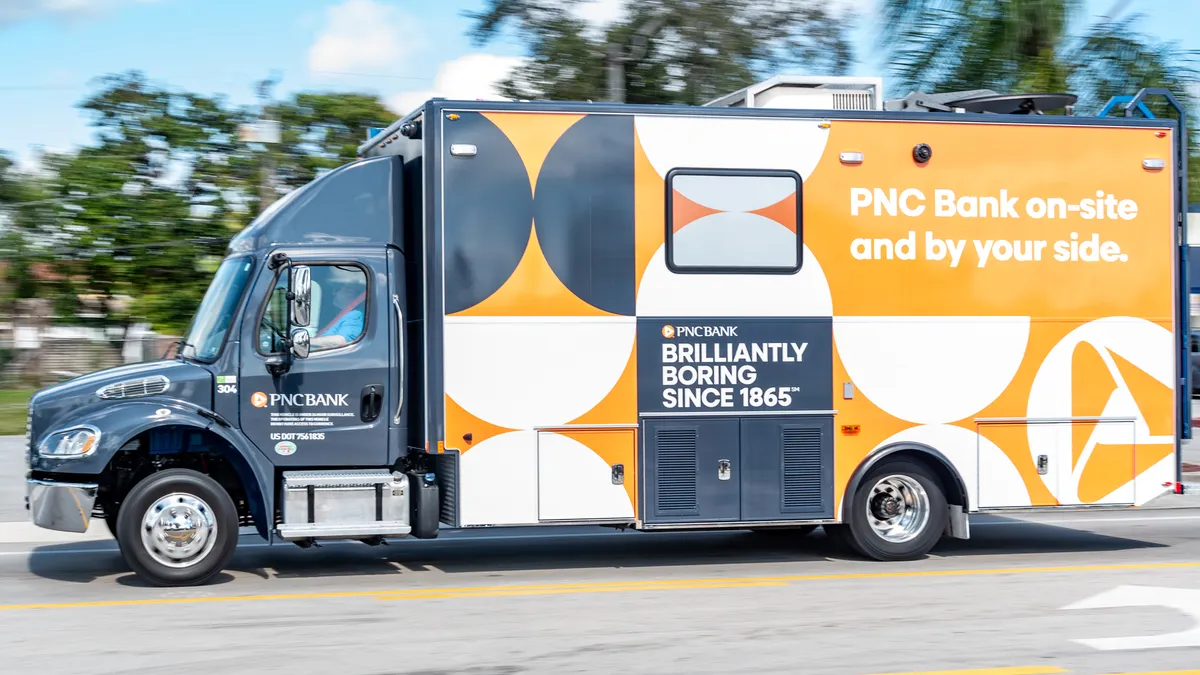Italy’s UniCredit has agreed to buy domestic rival Banco BPM in a €10.1 billion ($10.6 billion) all-stock deal, the bank said Monday.
The offer at once signals that UniCredit’s September buy-up of a stake in Germany’s Commerzbank is less of a short-term strategy. It also foils a possible attempt by the Italian government to see BPM, the country’s third-largest lender, grow to a size that would pose a challenge for its two larger financial institutions, Intesa Sanpaolo and UniCredit.
BPM on Nov. 6 offered to buy out asset manager Anima Holding in a €1.6 billion deal, then a week later bought a 5% stake in Monte dei Paschi di Siena from the Italian government. (Anima, for its part, bought a separate 3% stake in Monte dei Paschi di Siena.)
UniCredit’s €6.66-per-share offer represents a 0.5% premium to BPM’s closing stock price Friday. But it’s a 14.6% jump over BPM’s share price from Nov. 6, the day it bid for Anima.
“The Italian banking sector, which is one of our two biggest markets, is potentially consolidating,” UniCredit CEO Andrea Orcel said on a conference call Monday, according to the Financial Times. “We cannot remain absent from that move.”
But Orcel, on the call, also addressed UniCredit’s standing with Commerzbank. The Italian lender quietly amassed a 4.5% stake in the German bank in September, doubled it in a surprise bid, then sought to extend that to 21% through derivatives contracts. The sudden moves sparked backlash from the German government and prompted Commerzbank to dig in, naming a new CEO and issuing more ambitious goals on profit, revenue and return on tangible equity.
At the time, Orcel dismissed the buy-up as merely “an investment” but also made clear that a full takeover was a future possibility.
Orcel on Monday reiterated that Commerzbank is “an investment for now.”
“We can sit on it for a while. It will remain there. It’s not diverting management, it’s not requiring from us anything,” Orcel said Monday. “We are hoping that our presence will prompt Commerzbank to unlock a lot of the value that we know they have, faster.”
Political tensions in Germany, however, may have made a play for Commerzbank less likely in the short term. The nation is set to hold a snap election in February.
“Given the reception we have had in certain places, we need to be patient,” Orcel said of Germany on Monday’s conference call.
A day earlier, in an interview with state broadcaster ARD, Germany’s new finance minister Jörg Kukies said he “assume[s],” given the German government’s “very critical” resistance to UniCredit’s advances on Commerzbank, that Orcel won’t make a hostile bid for the bank.
The derivative positions that would extend UniCredit’s stake in Commerzbank to 21%, however, will not expire until 2026, perhaps reducing the Italian bank’s urgency to move on the German lender.
Orcel on Monday said the BPM bid reduces “the need to close on the other side,” referring to Commerzbank.
Further, Orcel said Monday that Commerzbank is “not a deal.” The BPM offer, by contrast, “is a transaction” and will require more attention, he said.
UniCredit said the deal for BPM could be closed by June, though it would need approval from the European Central Bank and antitrust regulators. Still, that would be faster than the bank could wrap any deal for Commerzbank if one were to arise. Orcel said he would only propose a deal for Commerzbank “at certain conditions,” according to Bloomberg. But that would have to be after Banco BPM is integrated.
“We’re never going to integrate two banks at the same time,” Orcel said, according to the Financial Times.
By acquiring Banco BPM, UniCredit would add roughly €200 billion in assets, including a strong presence in Italy’s wealthy north, including Lombardy, home to Milan. The deal could cost UniCredit about €2 billion in integration charges in its first year, analysts estimated. But Orcel said that wouldn’t affect shareholder dividends for 2024. Further, UniCredit has pledged to keep its dividend-per-share trajectory on pace.
This is not the first time Orcel has sought to acquire BPM.
Orcel prepared a buyout offer for the bank in 2022, around the time of Russia’s invasion of Ukraine. The deal fell apart, though, after a leak boosted the share price.
For that matter, Orcel in 2021 sought to buy Monte dei Paschi di Siena – in which BPM just took a stake – but walked away. After Monday’s deal, Orcel reiterated that UniCredit has “no ambition on MPS.”
Orcel, however, called BPM a “historical target” that UniCredit has “on and off looked at for tens of years.”
Banco BPM said its board would meet to discuss the bid Tuesday.














